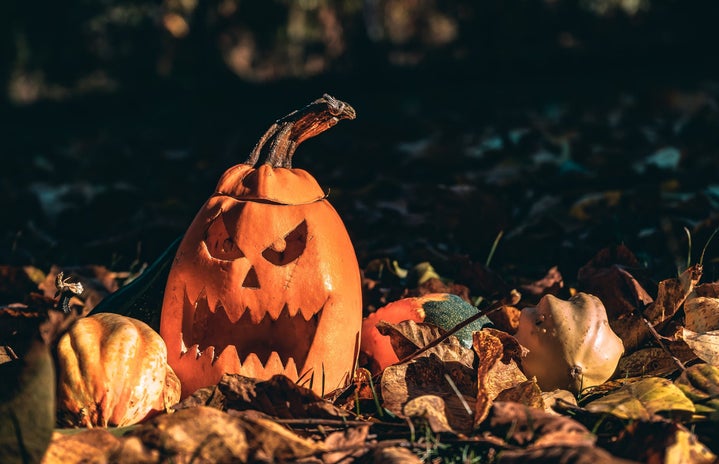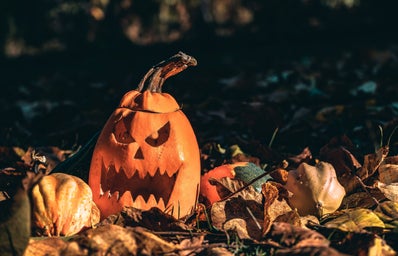Halloween is a time of self-expression and creativity. It allows you to become whatever and whoever you want to be, but with this freedom of self comes great responsibility.
- Halloween is an uncomfortable holiday for people of color, especially myself.
-
Halloween is my favorite unofficial holiday of the year, but with this love also comes the fear of being racially mocked. When I was younger, Halloween was an innocent holiday. I focused on seeing who the cutest ladybug was, which ninja turtle perform the best backflip, and how many Snow Whites decided to show up that year. However, as I’ve grown up, I’ve realized just how degrading Halloween can be. It is a night that encourages cultural appropriation and stereotyping of all cultures but especially of the Black community. Being a fair-er skinned African American woman, I’d think to myself: Why are these white women darker than me tonight? Why did they pick wigs like my hair texture?
It didn’t click that these women were mocking my race until my freshman year of college. I saw a classmate at a party dressed as Beyoncé. I noticed that she has tinted her skin a much darker color than normal, had on a 4C-type African American wig, and had overdrawn her lips to make them appear larger. As I analyzed her, she stopped me and asked my opinion on her costume. I remember standing there in shock, speechless. Then she made the comment C’mon.. you know I wear this better than your ancestors ever could. I was baffled. I saw her in class the next day, with her skin back to its fair complexion and blonde hair protruding from a messy bun. This encounter has haunted me since and truly opened my eyes to how much minority culture is exploited during Halloween.
- Some costumes may not be seen as racist but are.
-
I researched costumes to potentially wear this year, and I noticed that some of the most popular costumes are racist AF even though many don’t realize it. Below I explain why these top 10 trending costumes for 2020 need to be canceled:
Gypsy. When searching the description of a gypsy costume, I saw that it “is a great idea for ladies who want a stylish international costume” that screams Bohemian style. This is where everyone goes wrong. A gypsy does not symbolize a traveling, care-free woman living on her own terms. Historically, Gypsy was a term used to discriminate and slur the Romani people. They were a minority group that faced persecution in Europe and were thought to be cursed by God. Today they still face persecution, even though many have migrated and assimilated into society, seeking acceptance. So next time you call yourself a Bohemian Gypsy queen because you don’t take any nonsense and dress as you belong to nature… stop.
“Voodoo” Priestess. This is a common Halloween costume for makeup connoisseurs and those who want a dramatic look. Many see this as unharmful because you appear to look like a cultured version of a skeleton or a more elaborate witch. If you take a look at the history of Voodoo, you would learn that, contrary to popular beliefs, those who practice Voodoo don’t worship the devil, practice torture, or participate in cannibalism. Voodoo is a common religion in Haiti and New Orleans that originates from Catholic and African religions. Slaves introduced the Voodoo religious practices to America when they were brought to the new world.
White slave owners started the negative connotation with their religion because they did not understand their writings, practices, or worshiping ways. According to Bustle, these stereotypes have been emphasized more over the years due to media providing “undiluted racial anxieties, manifested as lurid fantasies about black peoples”. In close, as Harvard professor Adam McGee points out, “to wear a voodoo costume ignores the real religious significance of some of the symbols and plays into a racist image created by the media.”
Any costume, in general, that requires you to change the color of your skin to mimic another race. I always thought this was a self-explanatory idea, but as I mentioned before, I have noticed more and more people participating in changing their race one night a year. The most well-known and blatant example of this is blackface: dark makeup worn in a caricature [to mimic] the appearance of a black person. Even in the definition of blackface, you see the word caricature being used, meaning distortion of characteristics. This is hurtful and degrading to the black community. We face the most backlash and problems for the color of our skin, but it is okay for others to pretend to be us for a night and mock us. How does this make sense? Blackface is an obvious example, but there are still subtler ways to change your race for a night. If you must go heavier on your bronzer or get an extra deep spray tan to appear darker before you go out for Halloween, just know you are imitating those with melanin.
It is understandable that sometimes we pick a costume without thinking of its historical context. My best advice when you have an idea that you know comes from a different ethnic background: do your research, ask friends from that culture, and have a back-up costume that you know could not insult a race or culture. Here’s the easiest rule of thumb: If you need to explain why your costume “isn’t racist,” perhaps you should reconsider. Happy Halloween! And don’t forget your matching mask.


